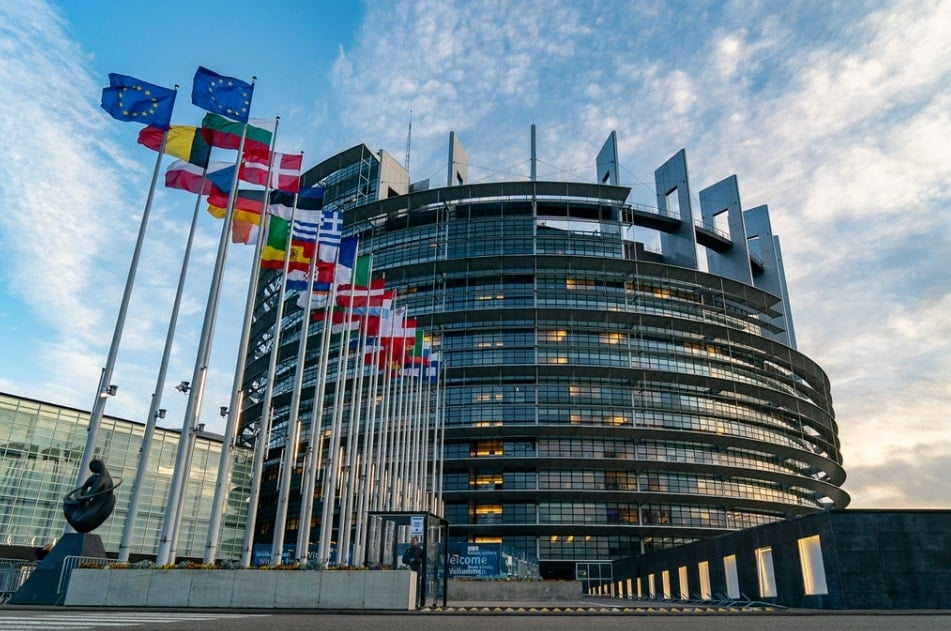
Kadri Simson, the European Commission’s (EC’s) commissioner for energy, has described energy storage as vital for the energy transition, yet often “overlooked” in plans and strategies.
Simson made the remarks yesterday in a speech to open a debate with Members of European Parliament (MEPs) on the role of energy storage in the European electricity system, that the commissioner said was “timely and necessary”.
Enjoy 12 months of exclusive analysis
- Regular insight and analysis of the industry’s biggest developments
- In-depth interviews with the industry’s leading figures
- Annual digital subscription to the PV Tech Power journal
- Discounts on Solar Media’s portfolio of events, in-person and virtual
The commissioner also presented the EC’s latest proposals on energy storage.
While the description of energy storage used included gas reserves and the need to fill them up again ahead of next winter, the debate focused also on European energy security and decarbonisation. Commissioner Simson referred to the need for flexibility resources, which electricity storage using batteries can provide.
“We have a lot of topics on our agenda. But storage is the centrepiece for building a decarbonised, flexible and cost-effective energy system, through electrification and energy system integration,” Simson said.
Storage is also key to achieving the aims of the REPowerEU plan, the Europe Union (EU) strategy to reduce the bloc’s reliance on imported Russian gas and ramp up renewable energy targets, Simson said, including renewable energy and hydrogen development.
“But the fact is that the role of storage is often overlooked,” Simson said.
This last point is certainly true on the evidence of some previous EU pronouncements on energy: for instance, energy storage was left out of early drafts of the REPowerEU plan, as well as from draft proposals for the EU’s Electricity Market Design reforms.
As reported by Energy-Storage.news however, and perhaps due in part to input from the industry and advocates, in both cases, later versions of the plans were revised to feature explicit treatment of energy storage.
Energy storage does however have friends or allies in the EU government: case in point being a 2020 report spearheaded by Austrian MEP Claudia Gamon which proposed putting energy storage and hydrogen at the heart of the energy strategy conversation.
Gamon spoke later in 2020 on the topic, in a webinar hosted by the European Association for Storage of Energy (EASE) and together with MEPs from three other countries and Dr Tudor Constantinescu, Principal Adviser to the Director-General for Energy in the European Commission.
Simson yesterday noted that the Austrian MEP’s report brought energy storage into focus “and set in motion a systematic work by the Commission”.
“We examined the relevant technologies, the barriers to their deployment to market, the gaps in the regulatory framework,” Simson said.
Commission’s proposals
“Today, I am delighted to present you the results of this work and the latest set of Commission proposals on energy storage,” the commissioner continued.
Electricity Market Design
As regular readers of this site will know, the reform of Europe’s electricity markets and their design has been a hot topic that industry players like Fluence have weighed in on with proposals of their own.
Simson noted that the reforms put provisions to boost “advanced storage and flexibility technologies” at the core of the market framework. Member States and electricity system operators will be required to assess the need for flexibility services in their national energy systems over five-year timeframes.
National objectives for flexibility coming from non-fossil fuel resources would need to be established, while Member States would be allowed to introduce mechanisms to support those non-fossil fuel resources or integrate them into capacity markets.
Meanwhile system operators could procure flexibility services during peak hours of system demand, use smart metering to determine the need for flexibility, and introduce network tariffs to incentivise flexibility.
Commission recommendation on energy storage
The EC published a recommendation document in March that was referred to by one industry source as a “de facto” energy storage strategy for the EU. As Simson said yesterday, the Staff Working Document highlighted the value of energy storage and featured a 10-point plan on how to remove barriers to and maximise energy system participation for storage resources.
Network code
Finally, Simson pointed out that Europe’s association of transmission system operators, ENTSO-E, was requested by the EU in March to begin developing a new network code.
“This will further support the development of demand response, including rules on aggregation, energy storage and demand curtailment, and address remaining regulatory barriers. And it will be an important step towards the use of flexibility services, in particular by system operators,” Simson said.
‘No European energy transition without storage’
“There will be no energy transition without energy storage!” MEP Claudia Gamon tweeted after the debate.
“Almost 3 years after my report on the topic, we finally have two relevant documents from the Commission that will hopefully move things forward. The current debate in the plenary is long overdue,” Gamon said, reinforcing the point that storage has been “carelessly overlooked”.
Gamon said in particular that permitting for large capacity projects needs to happen more quickly, and not be “stalled by bureaucracy,” before thanking commissioner Kadri Simson for “tackling storage with her team,” and “moving forward with changes”.






